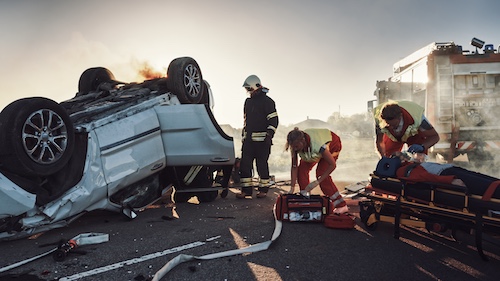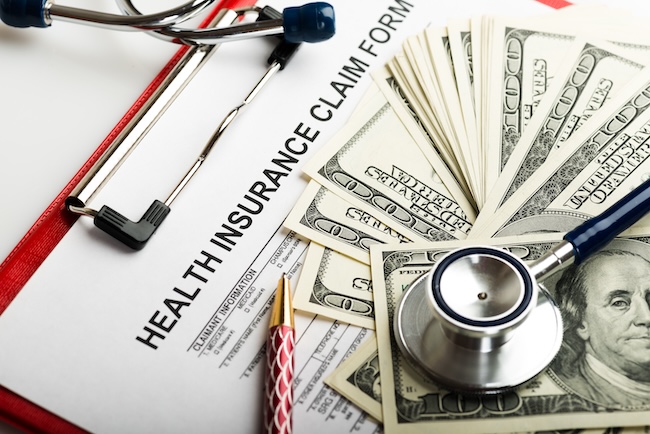Government Vehicle Accidents: What You Need to Know
Accidents involving government vehicles are not handled like regular car accidents. When a government employee causes a crash while performing official duties, special rules apply. These cases often involve strict deadlines, unique legal procedures, and limited liability due to sovereign immunity. If you were injured or suffered property damage in a collision with a police car, fire truck, or any government-owned vehicle, knowing the right steps can make the difference in getting fair compensation.
In this blog, we explain how to handle government vehicle accidents step by step, from gathering evidence to filing claims, and why working with an experienced Raleigh car accident attorney can help protect your rights and improve your chance of full compensation.
What Makes Government Vehicle Accidents Different?
Government vehicle accidents involve rules and procedures that do not apply to typical car accidents. Understanding these differences is important if you want to file a claim against a government agency.
Government Vehicles Operate Under Different Rules
Government vehicles include police cars, fire trucks, ambulances, postal trucks, and other vehicles owned by local, state, or federal agencies. These vehicles are often used by government employees while performing official duties. This changes how liability is determined and how a claim must be filed.
Sovereign Immunity Limits Liability
Sovereign immunity is a legal doctrine that protects government entities from being sued in many situations. While most states, including North Carolina, allow some exceptions, this protection can still limit how and when you can seek compensation. You must follow specific rules, including notice requirements and deadlines, or your claim may be denied.
Special Claim Procedures Apply
Filing claims involving government owned vehicles requires following a strict legal process. In most cases, you must file a notice of claim with the proper agency before filing a lawsuit. This notice usually must be submitted within a short period, often within six months of the accident. Missing this deadline can result in your case being dismissed, even if the government employee was at fault.
Different Insurance Coverage
Unlike private drivers, government entities are self-insured or have separate insurance policies with different procedures. The process for recovering damages such as medical expenses, property damage, lost wages, or pain and suffering may be slower or more difficult. Insurance information is often harder to obtain, and you may need a car accident attorney to help with access and communication.
Government Employees and Official Duties
If the government employee was performing official duties at the time of the accident, the government agency may be responsible for damages. If the employee was using the vehicle for personal reasons, the situation could change. Determining whether the driver was on or off duty is a key part of many government vehicle accident cases.
Limited Time to Act
Government vehicle accidents often have shorter time limits for legal action. These limits vary depending on the type of government agency involved. Acting quickly and gathering evidence like the license plate number, insurance details, and accident report is essential to protect your rights.
Immediate Steps to Take After the Crash
Taking the right steps after government vehicle accidents helps protect your health, your rights, and your chance of fair compensation.
Check for Injuries and Call for Help
Start by checking yourself and others for injuries. Call 911 right away if anyone is hurt. Request medical attention even if injuries seem minor. Some symptoms take time to appear. Keep all medical records and receipts. These documents are important when filing claims for medical expenses and pain and suffering.
Move to Safety and Prevent Further Damage
If possible, move your vehicle out of traffic to prevent more accidents. Turn on hazard lights and stay alert. Avoid speaking about fault or responsibility at the scene. Focus on safety and collecting information.
Gather Information and Evidence
Get the full name, agency, and badge number of the government employee driving the vehicle. Write down the license plate number and vehicle number. Ask for insurance information and a copy of any forms they carry. Take clear photos of all vehicles involved, including close-ups of damage and wide shots of the crash scene. Photograph road signs, signals, and any visible injuries. This evidence helps support your claim for property damage and repair costs.
Talk to Witnesses
Ask for names and contact details of any witnesses. Their statements may help prove what happened, especially if the government employee denies fault. Witness testimony supports your version of events and may be useful in court.
File a Police Report
A police report creates an official record of the accident. This report includes important details about the crash and the drivers involved. Request a copy for your records. Insurance companies and courts often use this report when reviewing claims.
Do Not Delay Contacting a Car Accident Lawyer
Government vehicle accident cases involve strict deadlines and unique legal rules. A car accident attorney can help you report the incident to the right government agency, deal with the insurance company, and prepare the paperwork. Waiting too long can affect your right to file for compensation.
Notify the Appropriate Government Agency
After government vehicle accidents, you must notify the responsible agency before you can file a lawsuit or claim compensation.
Identify the Government Entity Involved
Start by confirming which government agency owns the vehicle. It could be a city department, a county office, a state agency, or a federal branch. The license plate number and markings on the vehicle can help identify the correct department. Common examples include police cars, fire trucks, and other government owned vehicles used during official duties.
File a Notice of Claim
Most government entities require a written notice before they allow you to file a lawsuit. This notice of claim must include your name, contact information, a description of the crash, the date and time the accident occurred, and the amount of compensation you are seeking. You must submit this notice within a short window, often six months from the date of the crash.
Understand Filing Rules and Deadlines
Every level of government has its own rules. State and local governments usually have their own procedures. Federal cases follow the Federal Tort Claims Act. If your notice is late or incomplete, your claim may be denied. Following the exact rules is required to continue the legal process. A car accident lawyer can help make sure the notice meets all legal requirements.
Include the Right Supporting Documents
Attach supporting materials with your notice. These may include the police report, medical records, photos of vehicle damage, repair estimates, and witness statements. Providing this evidence early helps the government agency begin its investigation. A thorough claim may improve your chance of receiving fair compensation for injuries, lost wages, and property damage.
Confirm Submission and Keep Records
Use certified mail or another trackable method to submit your notice. Keep a copy of everything you send, along with proof of delivery. This protects your case if the agency claims it did not receive your paperwork. Missing or unconfirmed notice can prevent you from filing a lawsuit later.
Understanding the Legal Process and Filing Claims
Filing claims after government vehicle accidents involves a legal process that is more strict and detailed than in other car accidents.
Follow the Claims Process for Government Entities
Each government agency has its own procedure for handling claims. Local, state, and federal rules are different. Before filing a lawsuit, you usually must file a formal claim with the agency involved. This step gives the government time to review the incident and decide if they will pay compensation. If the claim is denied or ignored, you may then file a lawsuit in court.
Deadlines and Statutes That Affect Your Case
Strict deadlines apply to government vehicle accident cases. Many agencies require you to submit a notice of claim within six months. If you miss this deadline, your right to pursue compensation may be lost. These rules are part of sovereign immunity laws, which protect the government from some types of lawsuits. You should act quickly to protect your rights and avoid delays that can affect your claim.
Proving Fault and Gathering Evidence
You must show that the government employee caused the crash while acting within the scope of official duties. This requires proof such as the police report, eyewitness accounts, photos from the scene, and possibly expert review of crash data. In some cases, video from traffic or security cameras may help. A car accident lawyer can help conduct a thorough investigation to build your case.
Types of Compensation You Can Seek
If your claim is approved, you may be eligible for payment for medical expenses, property damage, repair costs, lost wages, and pain and suffering. In cases of wrongful death, family members may file for damages related to the loss. The total cost of a government vehicle accident may include hidden damages that are not visible at the scene, so full documentation is important.
Dealing with the Insurance Company
Many government agencies use their own insurance programs or self-insurance plans. These programs may have special forms and internal review procedures. It can be hard to get clear information or responses. You should not rely on the insurance company to explain your options. A car accident attorney can help file the correct forms, respond to requests, and push for fair compensation.
Contact an Experienced Raleigh Car Accident Attorney Today!
If you’ve been injured or experienced property damage in a government vehicle accident, don’t wait to take action. These cases follow strict rules and deadlines that can impact your right to compensation. Our team at Mogy Law has the experience and focus needed to handle claims involving government entities, whether local, state, or federal.
Contact us at (901) 443-9133 for a free case consultation today!








